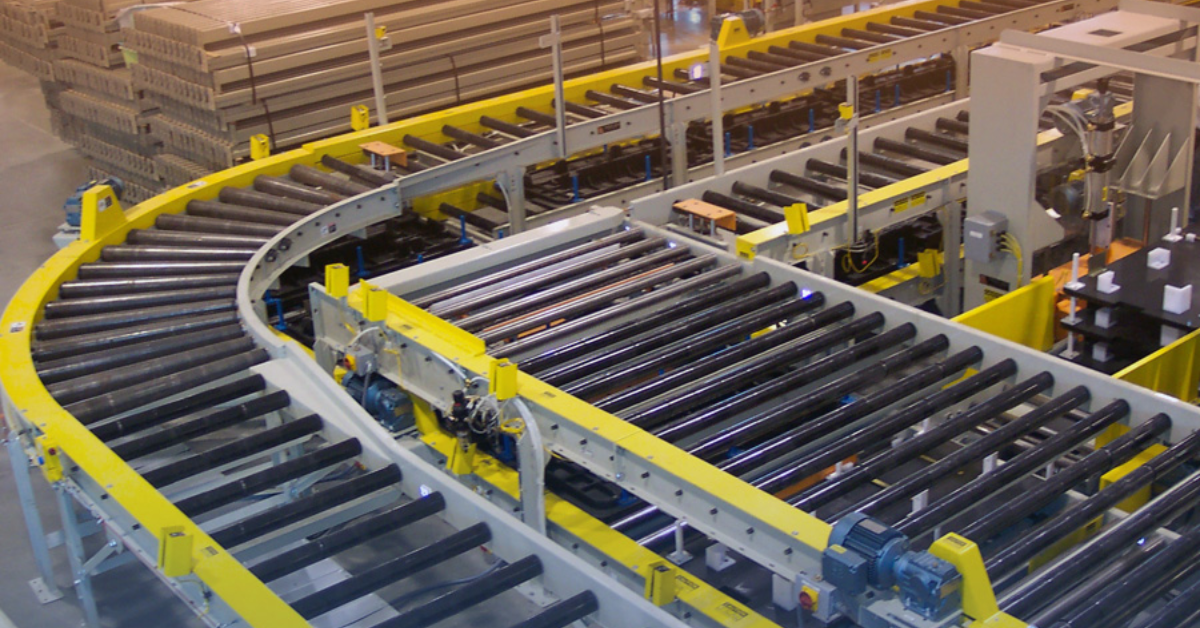A spreader conveyor is a critical component of maximizing operational efficiency, maintaining product integrity, and increasing productivity in today’s ever-evolving world of material handling. Understanding the factors influencing the choice of a spreader conveyor tailored to your specific application becomes increasingly important as technology advances and demand for specialized solutions increases. To help you make an informed decision that meets your operational needs in 2024, this article discusses key considerations for choosing the right spreader conveyor.
Conveyor Spreader Understanding
The spreader conveyor is a specialized system that distributes bulk materials evenly across a designated area. It is used in agriculture, construction, food processing, and recycling, as well as in a wide variety of other industries. Spreader conveyors differ from traditional conveyors in that they create a uniform layer of material, allowing for efficient handling and processing. As a result, they are incredibly valuable in applications that require consistency.
Conveyors with spreader conveyors are used in a variety of applications
In agriculture, spreader conveyors are utilized to evenly distribute seeds, fertilizers, and other bulk materials across fields, ensuring optimal planting conditions. In food processing, these conveyors play a crucial role in spreading ingredients uniformly, which is essential for consistent mixing and preparation. By distributing aggregates and other materials in a controlled manner, they improve project efficiency in the construction sector. As well as sorting and distributing recyclable materials, spreader conveyors are helpful in recycling operations.
Spreader Conveyor Factors to Consider
There are several factors to consider when choosing the right spreader conveyor.
Material type is paramount because different materials possess different characteristics, such as weight, size, moisture content, and flowability, which impact conveyor performance. To handle the load without compromising performance, heavier materials may require more robust conveyor systems. Larger particles might require wider belts or specialized spreaders to ensure effective distribution. The use of conveyors designed to handle high moisture conditions is also essential since materials with a high moisture content tend to clump together.
Conveyor configuration and design are another critical aspect. The belt’s dimensions, including its width and length, should be matched to the amount of material to be spread. A wider belt may be necessary for larger areas. At the same time, the discharge height of the conveyor should be appropriate for the particular application, especially if it is used in agriculture or construction. Conveyors that offer such flexibility may also be beneficial in some applications, such as those that need to change angles or heights.
Additionally, the operational environment plays an important role in the selection process. For outdoor applications, conveyors should be weather-resistant and robust enough to withstand various environmental conditions. Depending on the temperature or humidity levels, specific materials or coatings may be required to prevent damage. In addition, small facilities may require compact designs, while larger operations may need more extensive systems.
Different applications require different levels of throughput and operational speed in addition to speed and capacity. To determine the appropriate conveyor speed and capacity, the volume of material that needs to be spread in a specific time frame must be determined. Rapid movement may be required in some applications, whereas controlled, slower speeds may be preferred for accuracy in others.
A reliable conveyor should require minimal downtime and be easy to maintain. Maintenance and durability are also important to consider. In addition to enhancing durability and reducing wear and tear, high-quality materials can enhance durability. A simple maintenance system, such as accessible components and easy belt replacement, is crucial. Additionally, you can minimize disruptions by evaluating the warranty and support services provided by the manufacturer.
The automation of material handling processes will continue to shape the future in 2024. Consider how well a spreader conveyor can integrate with existing automated systems to ensure seamless operation. A conveyor’s performance can be monitored and adjusted with precision using advanced control options, enhancing efficiency overall.
In addition, budget constraints will always play a role. Although investing in a high-quality spreader conveyor is crucial, it’s important to analyze initial costs versus long-term value. Investing in a durable conveyor may save on maintenance and replacement costs in the long run. It is also possible to justify the expenditure by examining the potential return on investment (ROI) from improved efficiency.
Choosing a final course of action
Your decision must be based on evaluating these factors. Experts in the field can provide valuable insights tailored to your specific needs. Engaging with conveyor manufacturers or industry professionals can yield recommendations aligned with your operational requirements. Demonstrating the performance of different spreader conveyors allows for firsthand evaluation. You can also make a more informed decision by reviewing case studies or testimonials from other companies in your industry about their experience with conveyor systems.
Flexible design and configuration can ensure that your investment remains relevant as your business evolves. Selecting a conveyor that can accommodate future growth and changing needs will be beneficial.
Lastly,
In 2024, it is important to evaluate several factors, including material type, design, environmental conditions, and automation requirements, when choosing the right spreader conveyor for your application. With the right understanding of these elements and a trusted manufacturer like Wirebelt, you can improve operational efficiency and productivity. With Wirebelt’s innovative and customizable conveyor solutions, you can find the perfect conveyor solution for your specific needs. High-quality spreader conveyors tailored to your needs will deliver significant performance and long-term reliability, resulting in a successful business for you.
Stay in touch to get more updates & alerts on TGTube! Thank you



